Marine Geosciences I
The ‘AMU Lecture Series in Marine Geosciences I’ will consist of six lectures delivered by internationally-renowned marine scientists that study the role of the ocean in the Earth system from a geological perspective. The lecturers represent various leading institutions in marine science globally. Dr. Husum (Norwegian Polar Institute) and Prof. Forwick (Tromsø University), based in Norway, and Prof. Spielhagen (Geomar) and prof. Krastel (Kiel University) from Germany, prof. Gooday (Southhampton University) from UK and prof. Nittrouer (Washington University) from USA. They will provide an overview of recent advances in marine geoscience. The main topics of the lectures will be the role of sea ice in the climate system, fjord sedimentation, and sea ice histories in the climatically-important North Atlantic, large submarine landslides, deep-sea fauna, and sediment delivery by the largest river system on Earth (Amazon). The lectures will provide an overview of marine geosciences while also sparking scientific discourse and exchange during the panel discussions. Consequently, the lectures will provide a broad perspective on the leading topic of the series, which is also one of the most up-to-date research topics in Earth sciences. Undoubtedly, our university’s academic community and the broad international audience will benefit from listening to the lectures of such distinguished scientists on crucial topics and from the possibility of discussing with them during panel discussions.
Below is short information about each of the lecturers (bibliometric data after SCOPUS):
Matthias Forwick (Tromsø University, Tromsø, Norway)
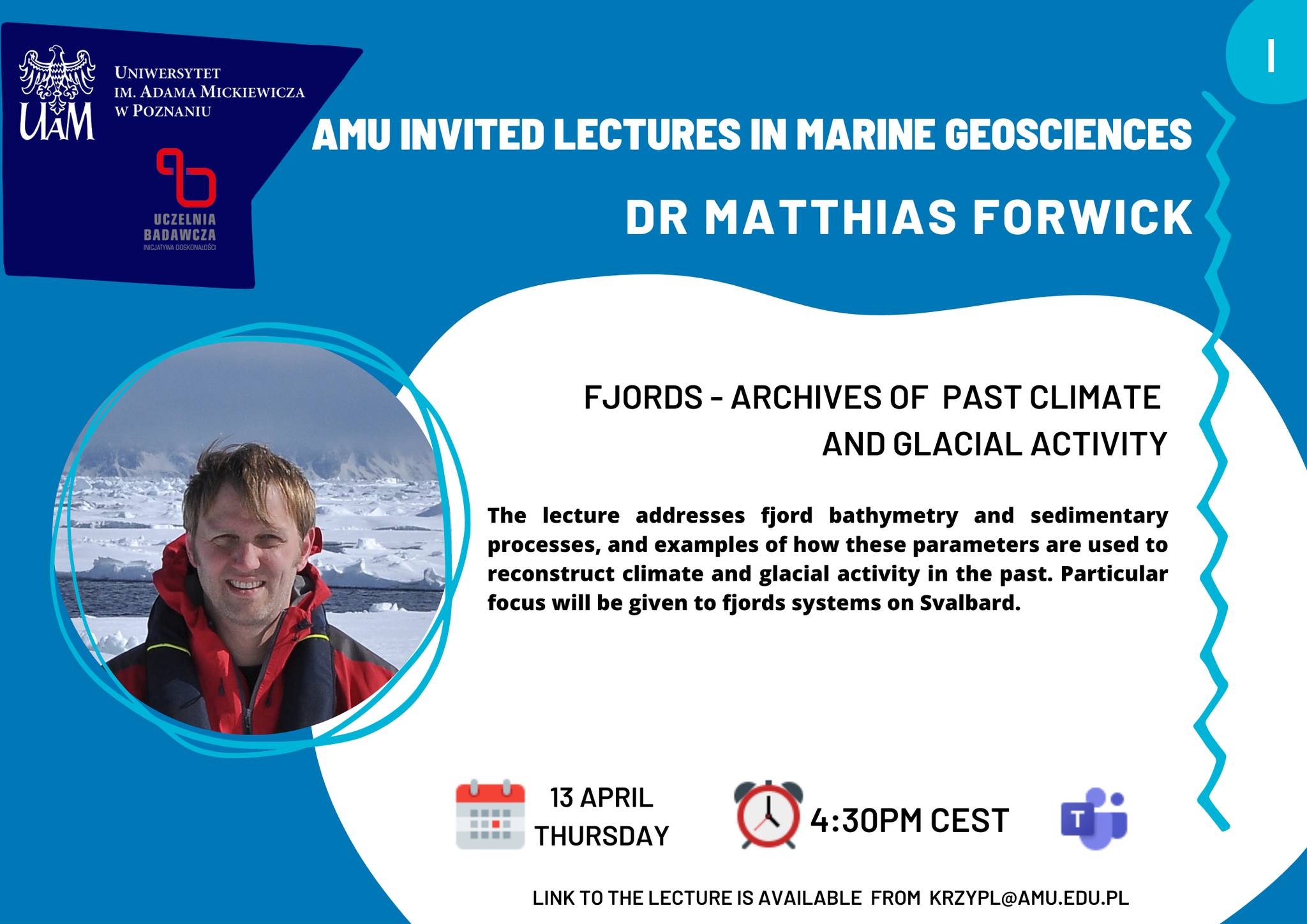
Preliminary lecture title: Fjords – the archives of Earth’s history
Dr. Matthias Forwick is Associate Professor and head of department at the Department of Geosciences at Tromsø University. He is an authority on fjord systems and palaeoclimate in both the Arctic and Antarctic. He has authored 82 scientific papers (H = 25), and edited major monographs on fjords (e.g. Fjord Systems and Archives). He has participated in numerous polar ship-based expeditions, including IODP. He is currently involved in high-profile research initiatives such as the Nansen Legacy Project and ECOGEN (Ecosystem change and species persistence over time: a genome-based approach).
Robert F. Spielhagen (GEOMAR, Helmholtz Centre for Ocean Research, Kiel, Germany)
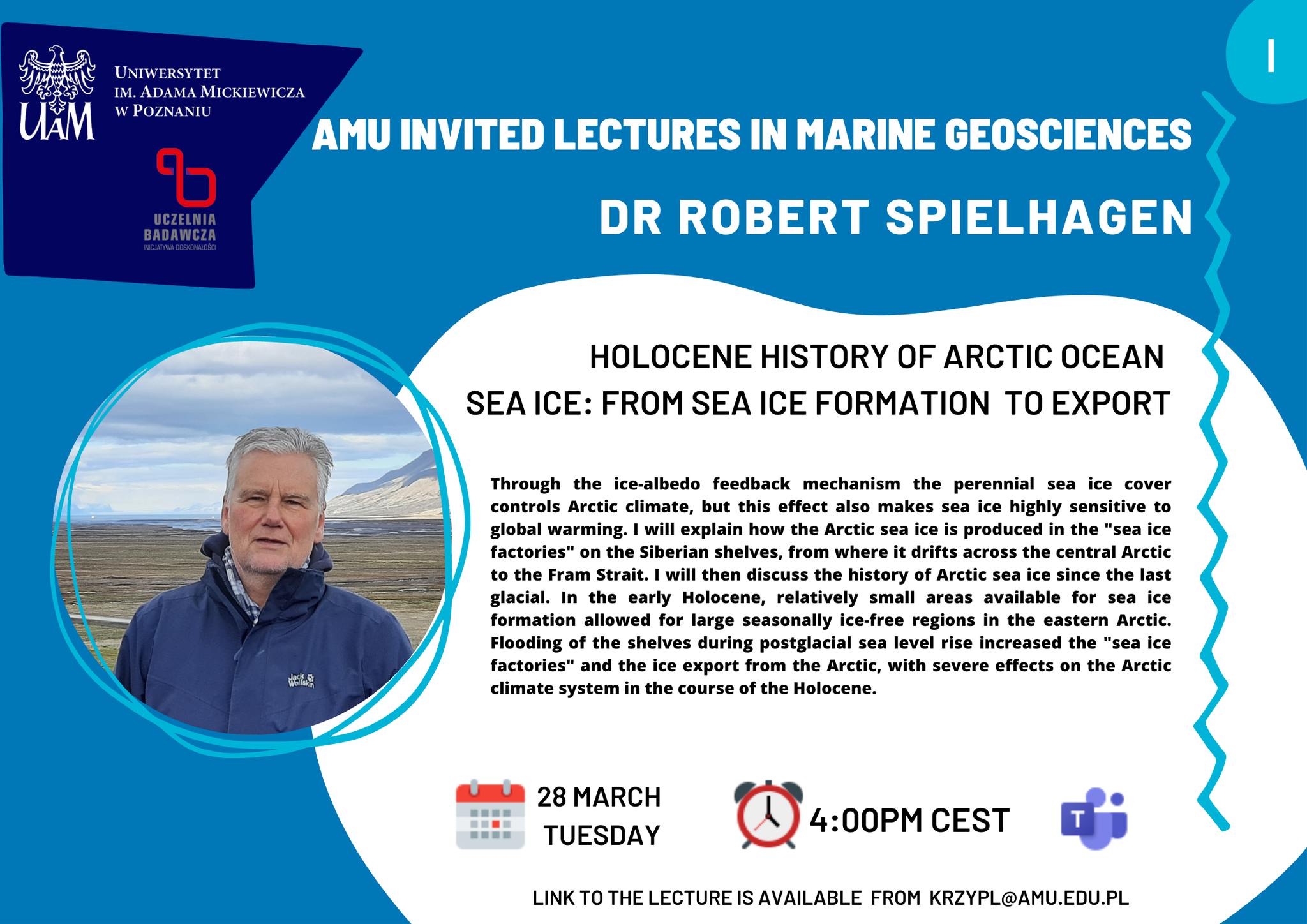
Preliminary lecture title: Holocene history of Arctic Ocean sea ice: From sea ice formation to export
Dr. Robert Spielhagen is Senior Research Scientist at the GEOMAR Helmholtz Centre for Ocean Research. His is a World-renowned expert in tracing climate change in the Arctic Ocean through geological time. Having authored 79 scientific papers (H=36), he has participated in over 20 ship-based expeditions and has supervised 7 PhD students, as well as being Principal Investigator on more than 20 projects funded by German and international sources. He has also guest lectured at various institutions, including UNIS (The University Centre in Svalbard).
Katerine Husum (Norwegian Polar Institute, Tromsø, Norway)
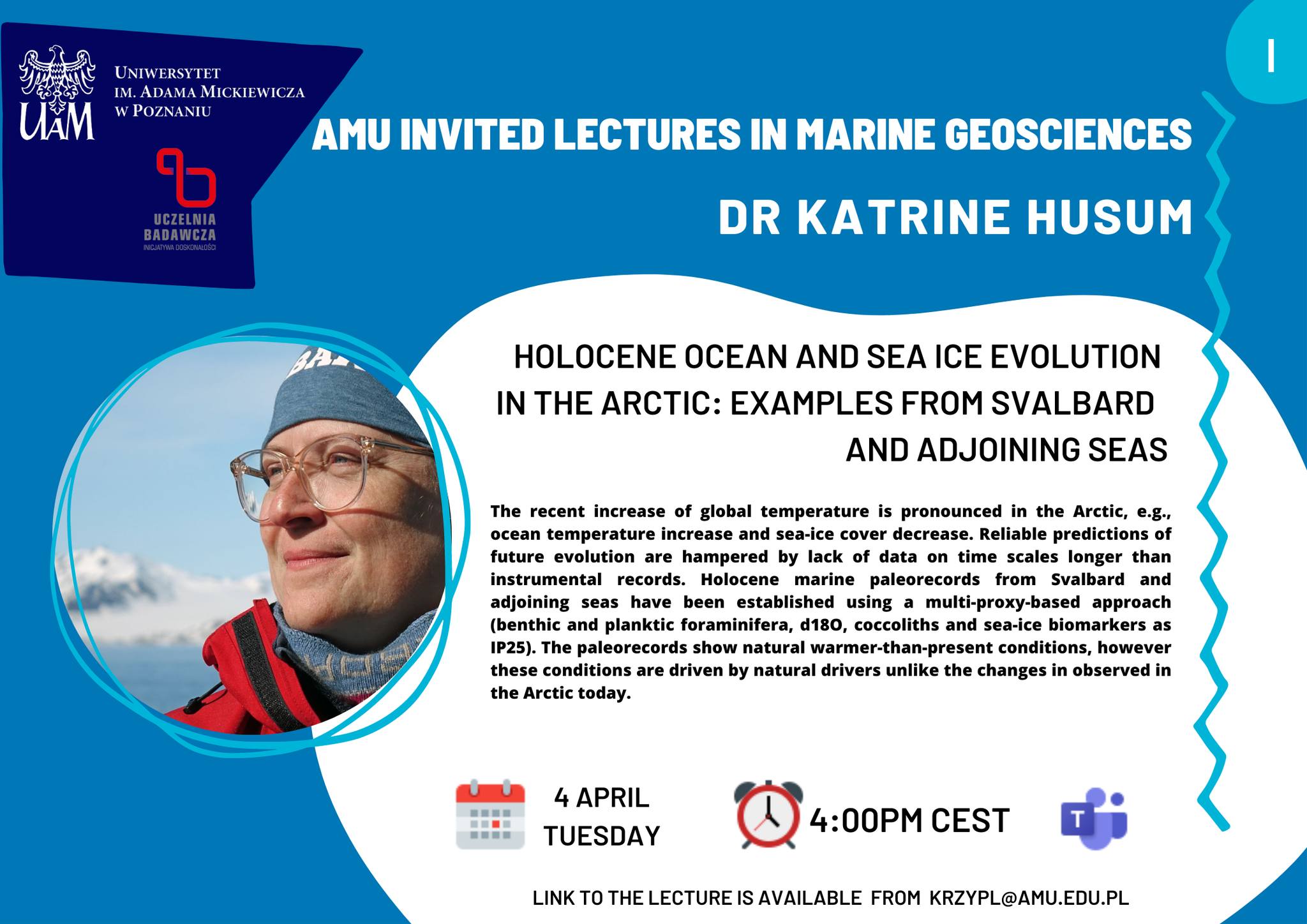
Preliminary lecture title: Holocene ocean and sea ice evolution in the Arctic: examples from Svalbard and adjoining seas
Dr Katrine Husum is a senior scientist at the Norwegian Polar Institute. She is an authority on high-latitude ocean and sea ice evolution over the Quaternary, specializing in marine micropalaeontology and biogeochemistry. She has authored 67 peer-reviewed papers in international scientific journals (H=27), has supervised numerous graduate students (amongst them, 9 PhDs), and has led over 20 ship-based scientific expeditions as chief scientist. She has furthermore served as editor of several peer-reviewed scientific journals, including Marine Micropaleontology and Arktos.
Andrew Gooday (National Oceanography Centre, University of Southampton, Southampton, United Kingdom)
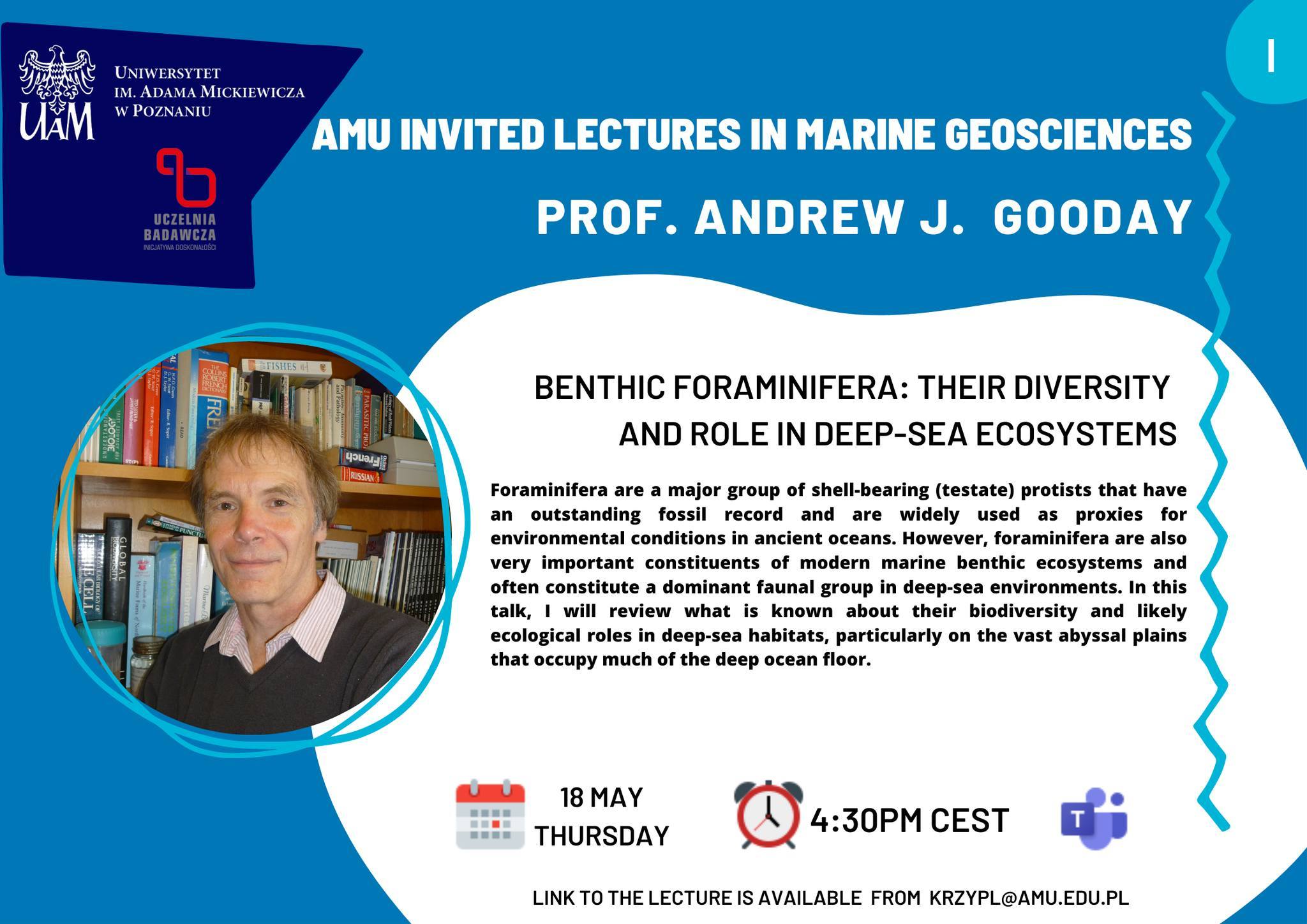
Preliminary lecture title: Mystery of deep-sea life
Professor Gooday is the author of 223 papers (H=57) focused mainly on foraminifera and deep-sea environments. He has broad interests in the biodiversity, biogeography and ecology of modern benthic foraminifera, xenophyophores, and gromiids (testate protists). Andrew Gooday is an undisputed authority in these areas. He is mainly interested in deep-sea environments, species taxonomy, marine ecology, and linkages between biotic and abiotic factors. He serves as Associate Editor of Deep-Sea Research I journal. Nowadays, he works on foraminiferal biodiversity and biogeography combining classical morphological methods with modern molecular approaches to define species ranges more precisely.
Charles Nittrouer (Sediment Dynamics Group, School of Oceanography, University of Washington, Seattle, USA)
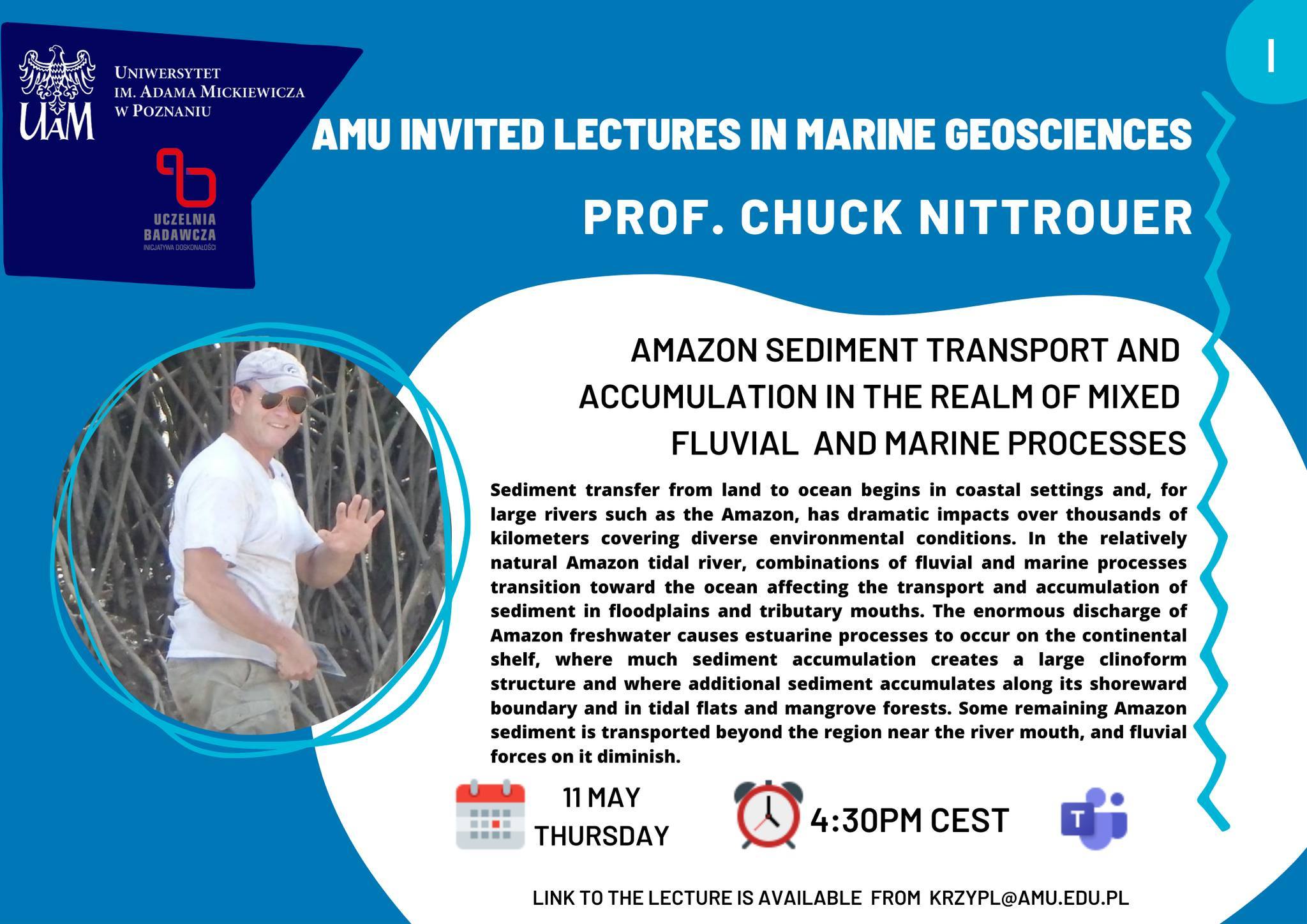
Preliminary lecture title: Amazon Sediment Transport and Accumulation along the Continuum of Mixed Fluvial and Marine Processes
Professor Nittrouer is an author of 180 papers (H=57) focused mainly on modern sedimentation on the continental margins worldwide. His research interests include the modern and ancient formation of sedimentary strata in continental-margin environments, and the effects of physical and biological oceanic processes on sedimentary characteristics. He is a professor in Earth & Space Sciences and in the School of Oceanography, and has made a career studying places where terrestrial sediment sources enter the ocean. These have included some of the biggest rivers (e.g., Amazon, Yangtze, Fly) and smaller systems (e.g., Po, Rhone, Sepik, Columbia, Eel, Copper), as well as tidewater glaciers entering southern and northern hemisphere oceans (e.g., Antarctica, Patagonia, Alaska). He has been elected a Fellow of both the American Geophysical Union and the Geological Society of America, and has received many awards during the course of his distinguished career, including Shepard Medal for excellence in marine geology.
Sebastian Krastel (Institut für Geowissenschaften, Christian-Albrechts-Universität zu Kiel, Germany)
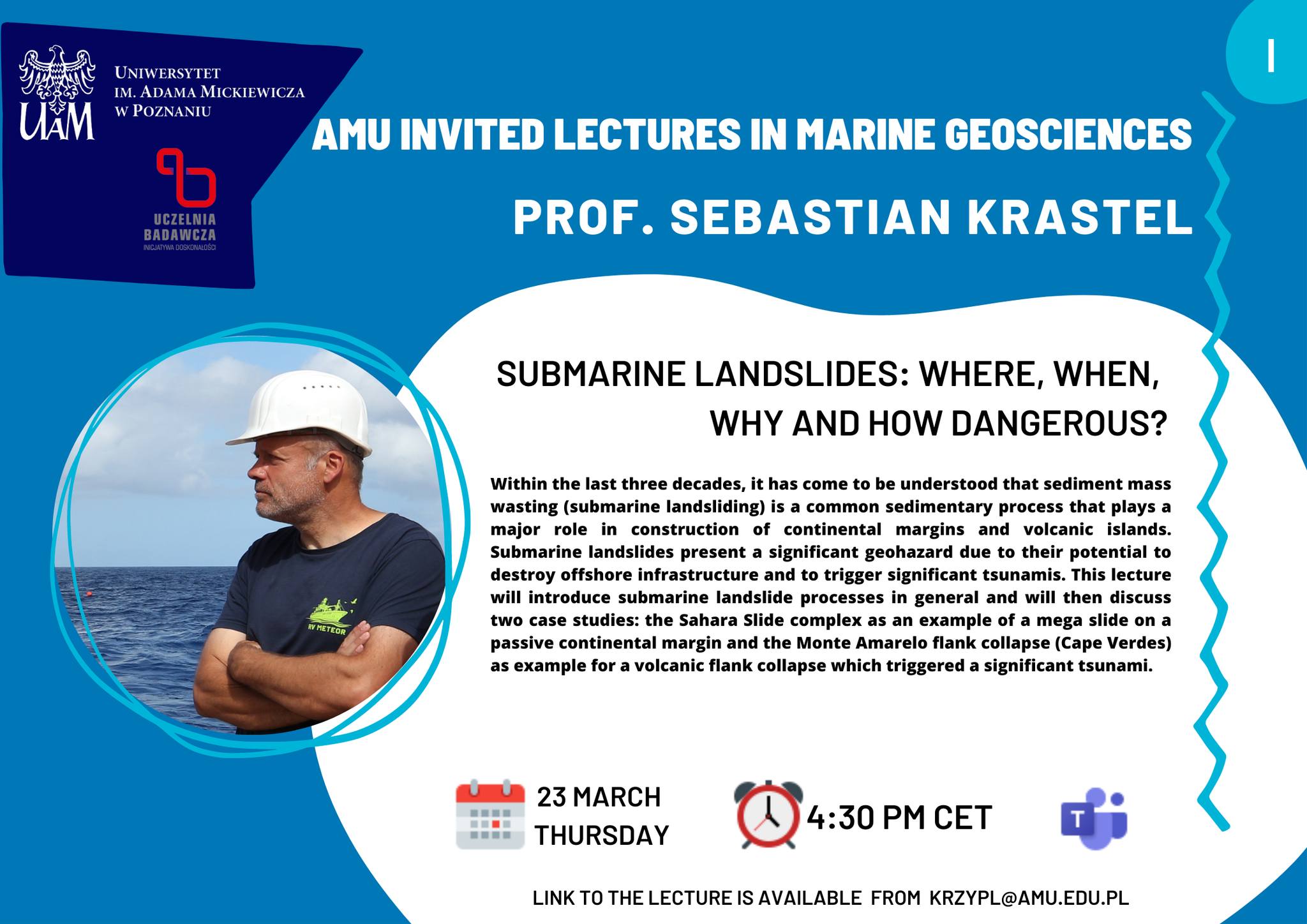
Preliminary lecture title: Submarine landslides: Where, When, why and how dangerous?
Professor Krastel is an author of 145 papers (H=33) focused on various applications of hydroacoustic methods for seafloor studies. His main research areas include large submarine landslides, and he is a world expert in this field. For instance, he edited the main monograph on that topic. He participated in over 60 research cruises and expeditions on lakes (several as chief scientists). He serves recently as Principal Investigator of two deep scientific drilling projects, Coordinator of DFG Infrastructure Priority Program ICDP (SPP 1006) as well as the Director of Institute of Geosceinces, Kiel University.